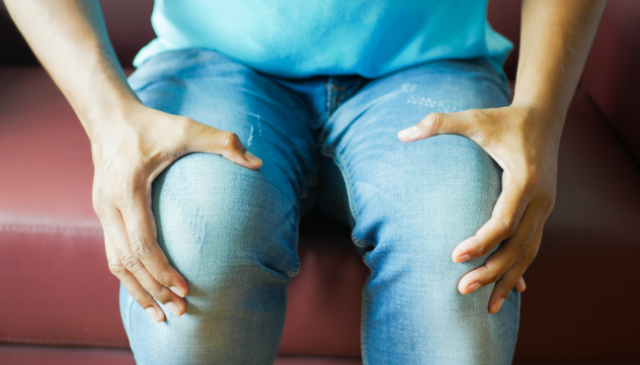News
Discover the Benefits of Manual Therapy for Knee Osteoarthritis

Knee osteoarthritis is an issue that many people are familiar with. For some, it's the reason they can't keep up with the running regimen they've worked so hard to establish, while it may prevent others from simply going for a walk with friends or doing some basic yard work. Whatever the case may be, most patients with knee osteoarthritis often experience some type of activity limitation that can impact their quality of life, and it's therefore essential for these individuals to understand which treatments are most effective for their condition.
What is Manual Therapy?
Manual therapy involves hands–on techniques such as soft tissue mobilization and joint manipulation that are administered by a physical therapist. It's a conservative treatment method frequently used in physical therapy to alleviate pain and improve function in various musculoskeletal conditions, including knee osteoarthritis.
The Effectiveness of Manual Therapy for Knee Osteoarthritis
A recent systematic review and meta–analysis evaluated the safety and effectiveness of manual therapy for relieving pain in patients with knee osteoarthritis. The study included data from 25 randomized controlled trials involving 2,376 participants. Here's what they found:
- Pain Relief: Manual therapy significantly reduced pain compared to usual care and exercise therapy. Patients experienced notable pain reduction, particularly when the treatment period extended beyond four weeks.
- Short–Term Benefits: Manual therapy was shown to be more effective in the short term (up to nine weeks) compared to other treatments.
- Safety: No serious adverse events were reported, indicating that manual therapy is a safe option for managing knee osteoarthritis.
How Does Manual Therapy Work?
Manual therapy includes various techniques designed to improve joint function and reduce pain, such as:
- Massage Therapy: Involves the manipulation of soft tissues to relieve pain, reduce inflammation, and improve circulation.
- Joint Manipulation: Involves applying controlled force to a joint to restore mobility.
By targeting the muscles, ligaments, and joints around the knee, manual therapy can help alleviate the symptoms of knee osteoarthritis, allowing for easier movement and less pain.
Additional Benefits of Manual Therapy
- Non–Invasive: Unlike surgical options, manual therapy is non–invasive and poses fewer risks.
- Complementary: It can be used along with other passive and active physical therapy interventions in a comprehensive treatment approach.
- Personalized: Manual therapy can be tailored to each patient's specific needs and goals.
What to Expect During Physical Therapy
If you're currently being held back by knee osteoarthritis, it might be time to visit a physical therapist to get started on a treatment program that will likely include manual therapy. During a typical session, a trained physical therapist will assess your condition and apply various manual therapy techniques to the knee and surrounding areas. Sessions typically last between 30 minutes to one hour and will include other interventions as well, such as strengthening and stretching exercises.
Manual therapy offers a promising option to manage knee osteoarthritis pain safely and effectively. By participating in a physical therapy treatment plan that involves manual therapy, you can expect to experience less pain and better knee function over time.
Contact Us Today for More Information
Ready to witness how manual therapy can help with your knee osteoarthritis? Contact us today for more information or to schedule a consultation with one of our expert physical therapists.
For additional details on the study featured in this article, click here.
Disclaimer:
The information in the articles, posts, and newsfeed is intended for informational and educational purposes only and in no way should be taken to be the provision or practice of physical therapy, medical, or professional healthcare advice or services. The information should not be considered complete or exhaustive and should not be used for diagnostic or treatment purposes without first consulting with your physical therapist, occupational therapist, physician or other healthcare provider. The owners of this website accept no responsibility for the misuse of information contained within this website.
